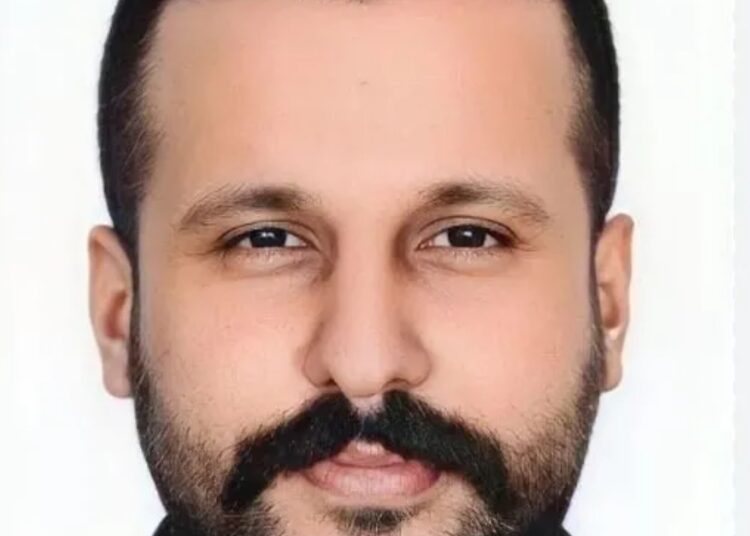Abdullah Bozkurt/Stockholm
Italy’s headline arrest of Turkish crime boss Barış (also known as Boris) Boyun and its attempt to return him to his native country has hit the nation’s toughest legal obstacle: Judges cannot approve extradition if there is a real risk of torture or degrading treatment in Turkey.
That obligation, reaffirmed by Italy’s Supreme Court of Cassation (Corte Suprema di Cassazione) in an April ruling, means Boyun is likely to remain under Italian judicial oversight while the courts conduct a meticulous review of evidence and human rights concerns, relying on independent reports rather than assurances from Turkish authorities.
Established crime bosses like Boyun and other notorious Turks who fled to Europe to escape criminal charges are now exploiting the dire record of the government of President Recep Tayyip Erdogan, which for over a decade has weaponized the justice system to imprison political opponents, silence legitimate dissent and allow widespread abuse and torture in detention and prison facilities as a means of instilling fear among the population.
Compounding Italy’s challenge is the sloppy work by Turkish officials in compiling the investigation file to secure Boyun’s extradition. The dossier is riddled with contradictory details such as dates, times and locations of the alleged crimes and padded with vague, generic statements lacking substance, leaving Italian judicial authorities struggling to assess the true nature of the allegations and the credibility of the evidence.
In April 2025 Italy’s Supreme Court of Cassation annulled a Rome appellate decision that had approved Boyun’s extradition and sent the case back for a fresh ruling. The court stressed that appellate judges cannot patch evidentiary holes in Turkey’s file by leaning on unrelated Italian investigations; the extradition decision must rest on the specific charges and proof from the requesting state.

It also ordered a concrete, individualized appraisal of detention risks in Turkey, drawing on objective and up-to-date materials such as inspections by the European Committee for the Prevention of Torture (CPT), case law from the European Court of Human Rights (ECtHR) and reports issued by the European Commission, rather than relying on generic diplomatic assurances.
The cassation judgment details why this matters now. Since a 2016 state of emergency in Turkey, international bodies have documented overcrowding, ill-treatment, politicized justice and patchy compliance with Strasbourg rulings. The court cites this body of work and reminds lower benches that Article 3 of the European Convention on Human Rights (ECHR), which prohibits torture or inhuman or degrading treatment, is absolute.
If risk remains serious at the specific facility proposed for the surrender, such as Dumlu Prison in Turkey, extradition is out unless Turkey can present credible, monitorable safeguards that truly neutralize that risk.
Italy’s line is also consistent with EU law. In June 2024 the EU Court of Justice held that Member States must pre-empt refoulement using objective, reliable, precise and appropriately updated information and that where a person has refugee status granted by an EU country, extradition back to the persecuting state cannot proceed while that status stands. Those principles now frame every Turkey-linked surrender file in the union, including Italy’s.
Boyun, 41, represents a new generation of mafia figures in Turkey, where he has built a violent gang engaged in a wide range of organized crime activities and ordered murders to eliminate rivals or extract concessions from targets. He challenged traditional mafia leaders and established underworld figures who enjoy protection from President Erdogan’s government and its far-right ally, the Nationalist Movement Party (MHP), a political force that has long served as a nucleus for organized crime figures and helped secure their release from Turkish prisons.
Ruling of the Italian Supreme Court of Cassation on the extradition of Turkish mafia boss Barış (also known as Boris) Boyun to Turkey cited abuse, torture, and human rights violations in Turkish prisons as potential obstacles to his transfer.
Because he challenged pro-government underworld figures and faced outstanding arrest warrants, Boyun was forced to flee Turkey and run his vicious criminal empire from Italy, where he sought asylum by claiming membership in two minority groups long persecuted in Turkey: the Kurds and the Alevis. The Erdogan government requested his extradition based on four arrest warrants issued by an Istanbul court for crimes allegedly committed in 2022–2023 — organized crime, homicide, armed robbery — but the poorly prepared case file sent to Italy has made his return highly problematic.
In the meantime, Italian prosecutors carried out their own separate criminal investigation into Boyun and his network, documenting his activities in sufficient detail to warrant his arrest on multiple charges that included plots of homicide, explosives, arms trafficking, drugs, document forgery and money-laundering across multiple countries.
Italian officials sought to strengthen the extradition file with evidence collected by their own investigators, but the high court ruled that extradition is permissible only after a summative review (sommaria delibazione) that includes qualitative scrutiny of the charges and supporting proof from Turkey. The court noted that the allegations against Boyun rested largely on statements from co-defendants rather than direct evidence and further held that the Italian arrest warrant could not be treated as equivalent to, or relevant for, the Turkish request.

Italian antimafia prosecutors in Milan say a months-long surveillance campaign mapped a transnational, armed network run by Boyun from Italian soil. Intercepts and covert video — captured via a bugged vehicle, a microphone inside an electronic ankle tag and listening devices at a residence — allegedly show him coordinating money movements, hiding firearms in car compartments and directing loyalists across borders.
Within that surveillance evidence investigators say they documented reconnaissance by a drone over an aluminum factory in Turkey that is linked to rival Burhanettin Saral, another mafia figure, followed by planning for a vehicle-borne “kamikaze” bomb. They further attribute to Boyun a line urging operatives to “flatten the factory.”
The Italian case file details how Italian authorities shared intelligence with Turkish counterparts in real time, after which police in Istanbul seized heavy weapons, including Kalashnikovs and a rocket launcher, and arrested a cell said to be preparing the strike.
In the same matrix, prosecutors connect him to weapons caches and ad-hoc gun-making, references to machine guns and explosives in parts of Europe and plots or provocations that spilled into Turkey — such as the Kalashnikov attack on a Nusret steakhouse in Istanbul on March 21 and a planned hit in Sakarya on a target identified as Ali Kaplan.
In May 2024 Italian police, working in coordination with their counterparts in Germany, Switzerland, Serbia and the Netherlands, executed arrest warrants for Boyun and more than a dozen other suspects. Those taken into custody included Turks such as Özge Büyükkaplan, Kerem Akarsu, Cemil Aytekin, Abutalip Burulday, Okan Bingöl, İnanç Cancın Friki, Fırat Çoğalan, Bayram Demir, Ahmet Durmuş, Tolga Gültepe, Önal Kertlez, Serkan Özcan, Emrah Şahin, Çağlar Şenci and Sinan Şimşek and a non-Turkish man named Georgi Menşin, described as a local fixer and handler.

Boyun himself was arrested near Viterbo, Bagnaia, as he prepared to meet his wife, Ece Boyun, who had just arrived from Turkey. In July 2024 the Court of Milan issued a pretrial detention order charging Boyun with being the leader of an armed criminal association, organized into branches across several European countries and dedicated to international firearms and narcotics trafficking, facilitating irregular immigration, carrying out homicides and massacres, money laundering, document forgery, receiving stolen goods and self-laundering.
However, in April 2025 Italy’s Supreme Court of Cassation ruled that evidence collected in a separate investigation by Milan prosecutors could not substitute for the materials submitted in Turkey’s extradition request. Investigative findings such as the Milan order, the court held, are not equivalent elements for the purposes of extradition review.
Boyun’s legal case in Italy comes with significant procedural baggage. He was first arrested in Rimini in August 2022 on the basis of a Turkish arrest warrant. In March 2023 a Bologna appellate court — in a decision later upheld by the Supreme Court of Cassation — held that political persecution disguised as common crime constitutes mandatory grounds for refusing extradition to Turkey.
On May 2, 2024, Turkey sent a delegation to Italy in an effort to secure Boyun’s extradition. Turkish officials offered guarantees that he would be placed under a maximum-security regime at Dumlu Prison, where, they claimed, international standards set by the ECtHR are respected. Relying on those assurances, the Court of Appeals of Rome on December 21, 2024, granted Turkey’s request for extradition. Boyun, however, appealed that decision, leading the Supreme Court of Cassation to overturn the Rome ruling and order a fresh review of his case.

This back-and-forth among Italian courts helps explain why the benches have consistently insisted on granular proof of who did what, where and when as well as a serious, evidence-based analysis of detention conditions in Turkey before signing off on any surrender. The high court emphasized that Turkey’s long-standing and systemic violations of human rights and fundamental freedoms of detainees have been documented and verified by independent authorities, including both intergovernmental bodies and respected nongovernmental organizations.
On remand, Rome’s appellate court must now re-weigh probable cause using Turkey’s own file, not parallel Italian cases, and resolve inconsistencies including date mismatches in the Turkish warrants flagged by the Supreme Court of Cassation. It must pin down facility-level detention risk for the exact prison Turkey proposes, testing it against CPT findings, commission reports and recent ECtHR jurisprudence because general assurances will not do.
It must verify any protection status, such as asylum or refugee recognition and explain, in a detailed reasoning, how any alleged safeguards would be effective in practice for this defendant.
Because the legal ceiling is high and the fact-checking is exacting, the Supreme Court of Cassation’s April ruling has reset the clock, requiring a fresh, fully reasoned decision. Until that lands and unless it survives further appeal, Boyun remains in Italy while prosecutors press their case.
The outcome will turn on whether Turkey’s evidence clears Italy’s specificity and sufficiency thresholds, and whether Italian judges can safely rule out a real risk of torture or degrading treatment at the destination prison.
Italy’s handling of the Boyun file is a template for EU practice with Turkey: There are no shortcuts on human rights, even in cases genuinely packaged as high-threat organized crime. A surrender, if it comes, would likely be tethered to hard, monitorable safeguards and a detailed risk record. A refusal would underscore that EU courts will not trade away Article 3 protections of the ECHR, even for a notorious suspect.












